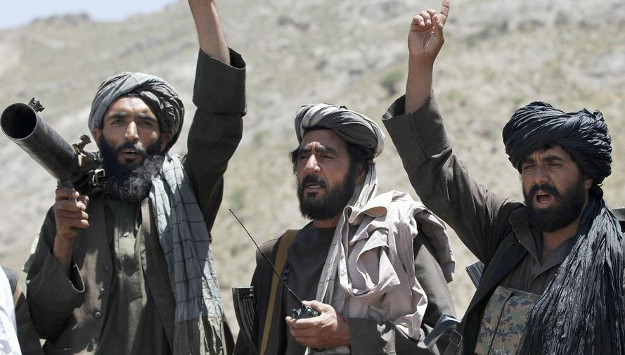A top Iranian official has called for the withdrawal of American troops from Afghanistan, the Iranian Students’ News Agency reported. Abbas Araqchi, the deputy foreign minister for political affairs, said the US exit from Afghanistan would be a “prelude to peace” in the country. Speaking at an international conference on Afghanistan held in Uzbekistan, the Iranian diplomat emphasized that the military solution in Afghanistan “has failed in the past and will fail in the future” – calling for a negotiated settlement to the war. Araqchi welcomed Afghan President Ashraf Ghani’s latest peace proposal to the Taliban, and offered Tehran’s assistance in the peace process. He further blamed the ongoing war in Afghanistan on the presence of the US-led foreign troops in the country.
Comment: For Tehran, expelling American troops from neighboring Afghanistan has long been a priority. And that explains why the Islamic Republic has been aiding the Taliban, a Sunni radical group that threatened Iran’s national security in the 1990s.
According to Afghan and American officials, Iran’s Revolutionary Guards has been funding, training, equipping and sheltering Taliban militants to undermine US-led stabilization efforts in Afghanistan and pressure the American troops to leave the country. Local officials in western Afghanistan often lay blame on Iran for growing insecurity and Taliban gains in Farah and Herat Provinces.
Tehran has also tried to pressure or bribe Afghan politicians, parliamentarians and tribal leaders to chart a timetable for the US exit – albeit with little success.
In recent years, Tehran has deepened its diplomatic ties with the Taliban and has hosted Taliban leaders in major conferences held in Tehran. In addition, the Iranian government has reportedly allowed the Afghan Taliban to open an office in Mashhad, near the Afghan border. Moreover, Tehran has been trying to align its Afghanistan policy with regional countries such as Russia and Pakistan in order to place more pressure on Washington.
On the surface, Iran’s support for the Taliban does not appear logical: Taliban is a reactionary militant group that massacred Afghan Shiites in late 1990s, and Iran and the Taliban almost went to war when the latter killed Iranian diplomats in northern Afghanistan. The Taliban's return to power in Afghanistan would undermine Iran’s geopolitical interests in South and Central Asia and pose a serious threat to Iran’s internal security as well – particularly in its restive Sunni-majority province of Sistan and Baluchestan. But by providing measured support to the Taliban, the Iranian government is pursuing several key objectives in Afghanistan: to accelerate the withdrawal of U.S. troops from its eastern border; to establish a buffer zone in western Afghanistan against a potential threat of Islamic State; to use its ties with the Taliban for its geopolitical agenda in South and Central Asia as well as in the Middle East; and to pressure the Afghan government for political concessions.



